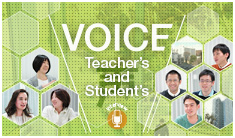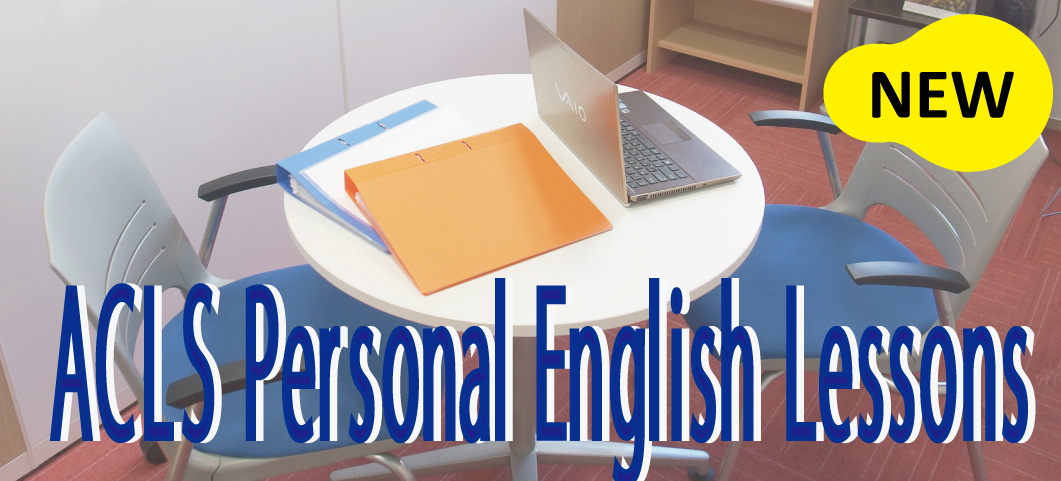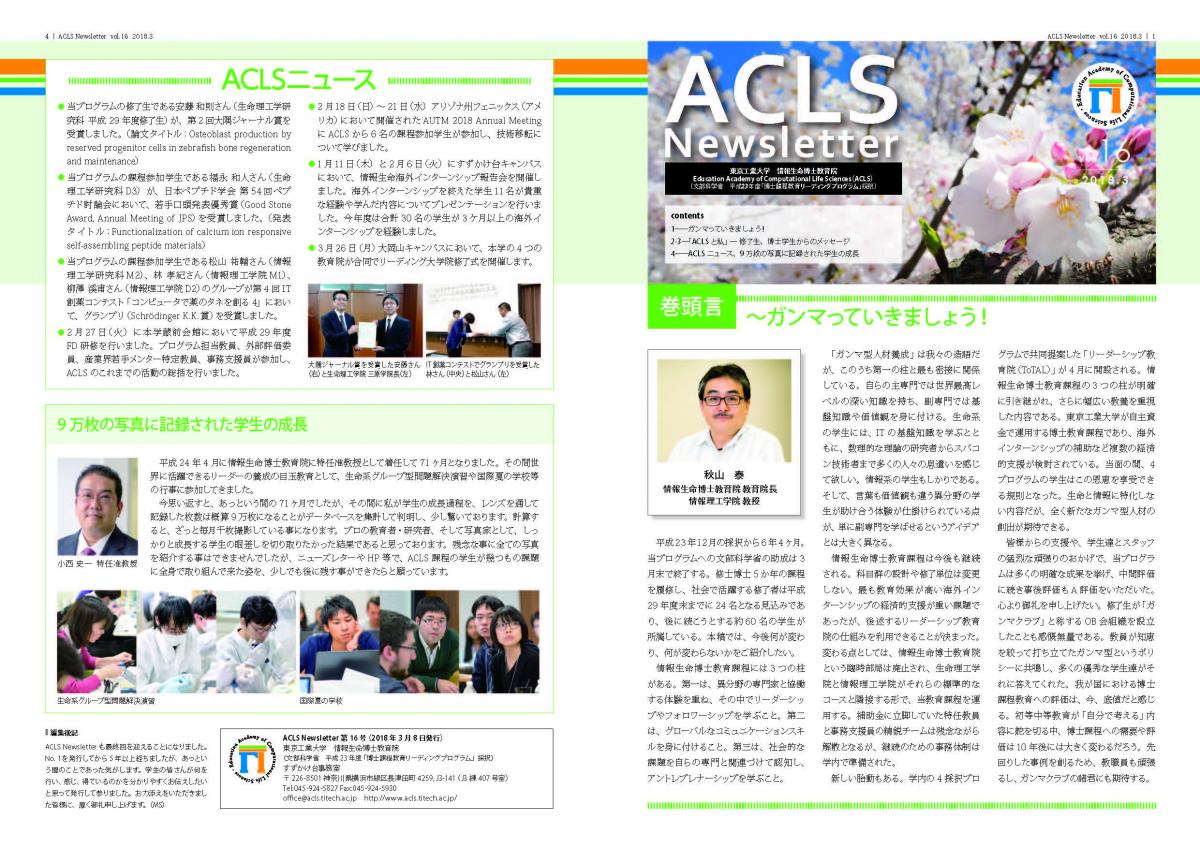- Home
- Teacher's and Student's voice
- Masakazu Sekijima
Masakazu Sekijima


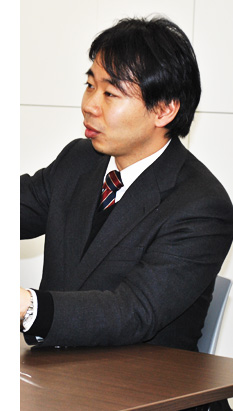 Sekijima: I have been involved with ACLS since before it was set up, from the stage of obtaining consensus within the University to “create a new postgraduate educational program that will bring computer science and life science together”.
Sekijima: I have been involved with ACLS since before it was set up, from the stage of obtaining consensus within the University to “create a new postgraduate educational program that will bring computer science and life science together”.
I carry out research in bioinformatics, mainly as a researcher in the computer science field. At present I belong to the Global Scientific Information and Computing Center. The Center is primarily responsible for supercomputers and international cooperative research, and also provides instruction to computer science undergraduates and postgraduate students specializing in computational engineering.
The students I normally come into contact with are specialists in the field of computing and have a lot of interest in computers. However, I felt it is difficult for them to carve out a new field of study in bioinformatics solely by their own efforts.
In terms of study, I realized that the important thing was not just learning about biology from the textbooks, it was coming into contact with students who specialized in bioscience and biotechnology, and working together with them in group work exercises. I thought it could be interesting if we were able to get these two different sensibilities to resonate together. That would really enable us to provide a superior education, wouldn't it? Starting to think this way was a major reason for me getting involved in ACLS.
As for myself, I have long been performing research in many specialist fields that could have been said to be outside my own specialization. Originally, I came from the Biotechnology (Agricultural Science) field. At present, I am carrying out research in the computer science field on supercomputers. From these experiences I understand the differences in sensibilities between students and researchers in biotechnology on the one hand and those in computer science on the other. The cultures and ways of thinking of these two groups are completely different. However, when you are concerned with fostering talented people who will go out and make a contribution to the outside world, it is necessary to be familiar with both these sensibilities. That means being genuinely well-informed about your own specialty and in addition having a degree of knowledge about the other field. I think that through the ACLS educational program, we produce these kinds of people.

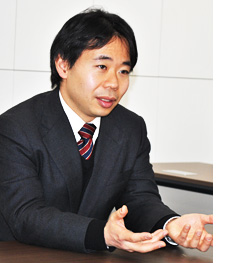 Sekijima: When it comes to possessing multiple specialist fields, I think the first thing you think of is “Π-type” specialists. These have sufficiently deep specialist knowledge in those fields (the two vertical strokes), and a wide ranging education (the horizontal stroke), which creates the bridge shape. If you can achieve this, that is the completely ideal situation, I think.
Sekijima: When it comes to possessing multiple specialist fields, I think the first thing you think of is “Π-type” specialists. These have sufficiently deep specialist knowledge in those fields (the two vertical strokes), and a wide ranging education (the horizontal stroke), which creates the bridge shape. If you can achieve this, that is the completely ideal situation, I think.
Notwithstanding this, if you are consciously trying too hard to have “multiple vertical strokes” from the outset, you are in danger of each of those vertical strokes not having sufficient depth. It ends up not being a capital “Π” but a lower case “π”. It is a situation where you do know multiple fields, but your degree of specialization in each of them is low. You could call it 'half-baked' specialization.
So that is why ACLS aims to produce “Γ-type” specialists. They know their own specialization, (the long vertical stroke), in sufficient depth, and possess a certain degree of knowledge about another field (the serif on the end of the horizontal stroke). That is the situation that we aim for. If you have a certain amount of knowledge, you are in a situation where, when you go out into the real world, you can deepen that knowledge. Or, if you form a team with other researchers you are in a situation where you can speak “on the same wavelength” with them. That is the strength of the “Γ-type” specialist.
At ACLS, we provide an educational program, where at the same time as deepening your own field of specialization, you are gaining quality knowledge about another field.

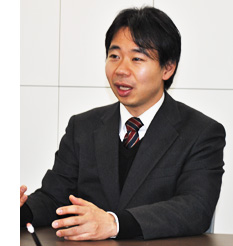 Sekijima: As well as your own field, you have to study another, completely different, field. If we consider the competence of students studying at Tokyo Institute of Technology, I think crossing this bridge is not difficult for them. I think that what is needed is to create as many chances as possible for students to decide that they would like to study a different field.
Sekijima: As well as your own field, you have to study another, completely different, field. If we consider the competence of students studying at Tokyo Institute of Technology, I think crossing this bridge is not difficult for them. I think that what is needed is to create as many chances as possible for students to decide that they would like to study a different field.
In the lessons that I am responsible for, we go about creating those chances by using themes that will pique a student’s interest. For example, when we carry out a practical exercise on molecular simulation, we do it using the world's latest cutting edge tools and programs. And we also use themes that come close to the process of discovering new pharmaceutical drugs. Now, it’s true that these are difficult things to study. But we employ many tricks as possible to make the students “get interested and keep on going”.
Looking at the program as a whole, we're always working out lots of little tricks to “get them hooked” and inserting these all over the place.
Studying another field by yourself is difficult, and that alone will not make you into a real “Γ-type” specialist... So, with this in mind, we added a lot of practical work in a group format where life science and computer science students come together and work on solving problems.

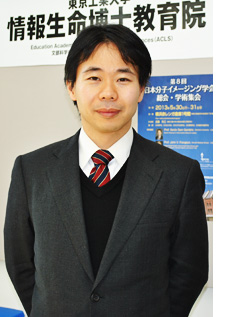 Sekijima: When I was a graduate student, the usual place where you were taught how to do research was the laboratory that you belonged to. I think that this method, if done properly, can work effectively even now. But looking at the exit point, that is, when you look at the world outside that is receiving the newly graduated postgraduate student, there are demerits to this method as well. This is because even with graduates from the same graduate school, the variation in teaching and methodology between laboratories comes out strongly in the graduates work.
Sekijima: When I was a graduate student, the usual place where you were taught how to do research was the laboratory that you belonged to. I think that this method, if done properly, can work effectively even now. But looking at the exit point, that is, when you look at the world outside that is receiving the newly graduated postgraduate student, there are demerits to this method as well. This is because even with graduates from the same graduate school, the variation in teaching and methodology between laboratories comes out strongly in the graduates work.
The ACLS education program was created to respond to this. The aim was, through interaction with students in other fields via group work and so on, to give them as many chances as possible to accelerate the process of communication with people from other fields. What happens is by bringing students into contact with various sensibilities, a kind of “chemical reaction” occurs, which makes the students able to turn their eyes away from closed world of their own discipline and towards the open one of multidisciplinary specialization.
Even apart from the regular group work, ACLS also offers the opportunity of a “summer school” where English is the official language.
In the summer school held in 2012, for example, groups of students whose specialist fields and languages were completely different set up a hypothetical joint venture based on one of the themes of i) Medical Service/Drug Development ii) Agriculture/Food Production iii) Environmental/Energy issues.
In regard to management of the summer school, the life science and computer science students took the initiative and formed a committee. In this way, we provided them with multiple opportunities to understand each other's respective backgrounds.

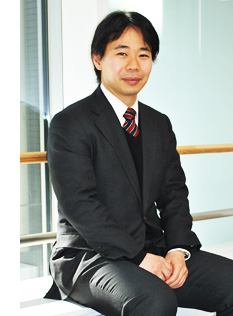 Sekijima: The ACLS program is providing education in an interdisciplinary field. The program's course in the field of bioinformatics for example, has achieved its current form as the result of more than 10 years of continuous development from various projects and postgraduate courses. At every stage of the process we identify the places where things are effective, and then putting them together in various ways to see if we can make things work even better. That is how the ACLS program works. I think it has become a program that, for life science and computer science people alike, allows them to expand their horizons and make great progress in understanding other disciplines.
Sekijima: The ACLS program is providing education in an interdisciplinary field. The program's course in the field of bioinformatics for example, has achieved its current form as the result of more than 10 years of continuous development from various projects and postgraduate courses. At every stage of the process we identify the places where things are effective, and then putting them together in various ways to see if we can make things work even better. That is how the ACLS program works. I think it has become a program that, for life science and computer science people alike, allows them to expand their horizons and make great progress in understanding other disciplines.
I say “bioinformatics” in one word, but there are slight differences in how it is perceived by those in the life sciences and those in the computer sciences. We are still trying to make a framework that more substantially comprehends the background to those differences and is able to transcend them.
We are going to continue building in further improvements to the ACLS program to make it even better, such as seeing how we can make each year's classes better in the following year. For instance, incorporating techniques actually used in industry, while coming up with themes that will attract the interest of the students. We are trying to make an environment with deep academic content, and one which will encourage students to become passionate about studying. We have prepared various research environments, and I think we would like to get young students to take on the challenge of the ACLS program for themselves, and realize the wonder of extending their academic horizons.
(Note) The contents of this article are accurate as of the time the interview was conducted in February 2013.






